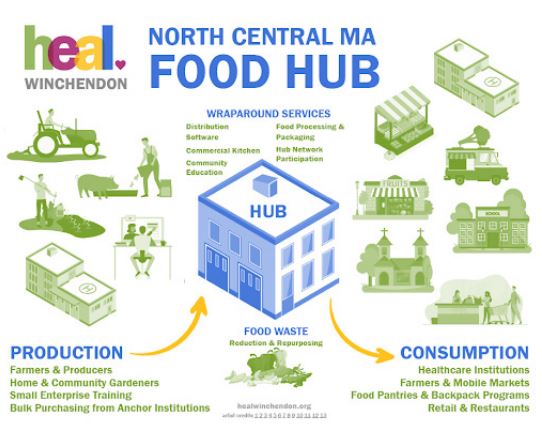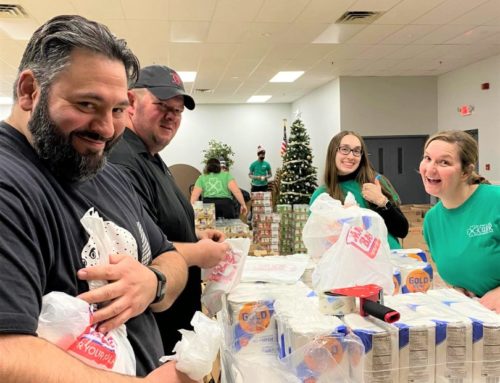WINCHENDON, Mass. — A team of graduate students at Harvard and the Massachusetts Institute of Technology (MIT) recently published a report that explored the economic viability of a proposed “food hub” in the town of Winchendon, which would work to increase food security and bring fresh produce from area farms directly to the town center.
The students, who authored the report titled, “Pairing Agricultural Opportunity with Healthy Food Access in North Central Massachusetts,” were enrolled in USA Lab, an action learning course at the MIT Sloan School of Management. The USA Lab course is designed to increase collaboration and on-site work with community host organizations in rural and small-town settings as they uncover solutions to various problems. The students – Rick Ganz, Allison Lee and Nora Tufano – partnered with the Community Foundation of North Central Massachusetts to conduct their research.
In an effort to pair a growing agricultural sector with consumers in need of nutritious food, the students proposed a “Central Mass Food Hub,” which comprises a centralized warehouse in Winchendon with smaller hubs throughout the region that could provide easier access to healthy local foods for residents who face difficulties with mobility and affordability.
In addition, the centralized food hub would serve as a distribution center for area farmers, some of whom said that it’s not economically feasible to transport their goods more than an hour away from their farms. It would also cut the administrative “red tape” for farmers who find it burdensome to apply with the state to accept Supplemental Nutrition Assistance Program (SNAP) and Massachusetts Healthy Incentives Program (HIP) benefits, thus opening the door to some of those with cost concerns around purchasing locally produced/organic food products.
“While this loss [of the Central Supermarket IGA] was immediately felt by employees and frequent customers, the closure was indicative of a larger problem linked to a broken food system in the United States,” the report said.
As of 2021, there are only 14 supermarkets in North Central Massachusetts, even though there are 800 farms in the area. In addition, many of the area’s residents don’t have access to reliable transportation to go to the grocery store. Winchendon, which has a population of 10,825, lost its only supermarket when Central Supermarket IGA shut down in January 2017 citing “financial loss.” And while agriculture makes up about 2% of the region’s employment, it has grown 22% from 2010 to 2018, according to the report.
North Central Massachusetts was once a hub of economic activity, particularly in the manufacturing sector. Winchendon was dubbed “toy town,” Leominster was “comb town” and Gardner was the “chair city.” Many of these manufacturing hubs closed in the post-war era and since then, many have struggled to find new economic drivers. Food inaccess is compounded by a lack of robust transportation systems or car access. For instance, the closest supermarket for Winchendon residents is six miles away in Rindge, New Hampshire, leaving many residents to shop at local convenience and dollar stores, which sell heavily processed foods with little to no nutritional value.
According to the report, “Based on data from the US Census and Food Bank of Western Massachusetts, we estimate that there are over $6.5 million in untapped SNAP benefits and $1.9 million in untapped HIP benefits within the North Central Massachusetts region. This is lost economic impact for the region, as well as a lost opportunity for consumers.”
The report’s findings were presented to the non-profit organizations Central Mass Grown and Growing Places.







Leave A Comment